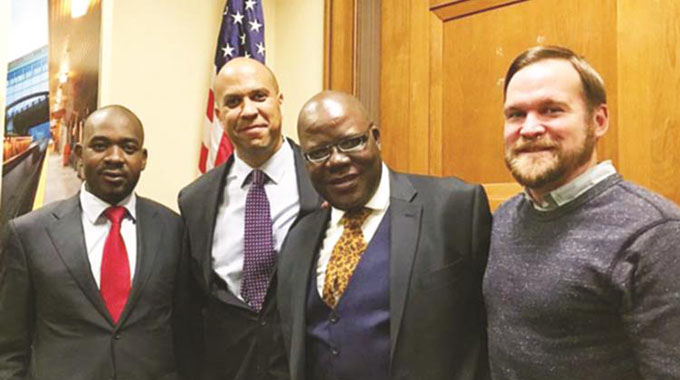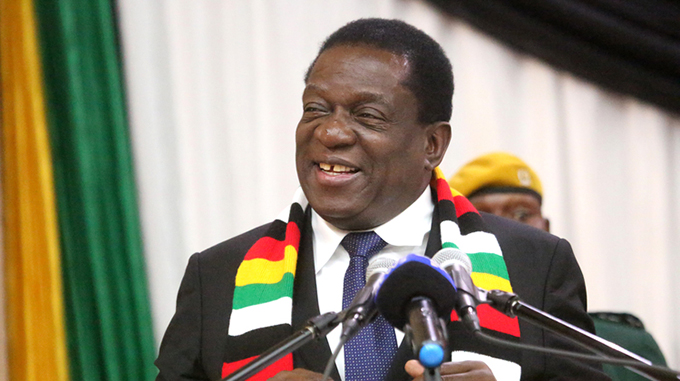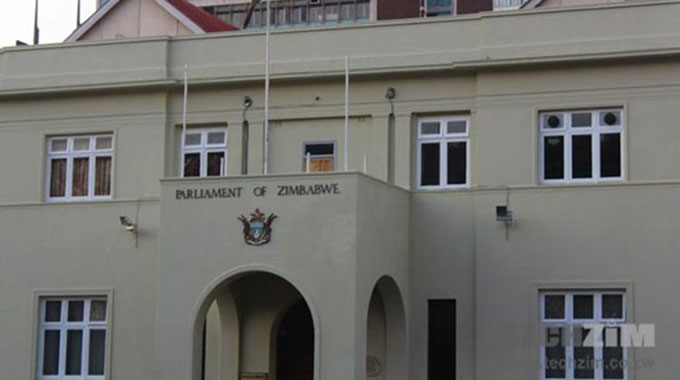Patron-client politics not good for democracy

Reason Wafawarova on Monday
It is an accepted fact in political intellectualism that political engagement is an important facet of the relationship between authorities and citizens. Engaging citizens is an indispensable component of leadership if any authority is to decently present its duties to the people.
There are many avenues that are often created to ensure that people actively take part in politics. In our part of the world we have various party structures, political rallies, media campaigns, and of course we routinely carry out elections to ensure that we can respect “the will of the people”.
It is not always that governments across the world engage citizens in the most transparent of ways. We have states where political engagement is unfastened. These are states that do not carry out elections, states that are authoritarian and led by an established and accepted leadership hierarchy or order. Good examples are the dynasties of the Middle East like Saudi Arabia and others. In these countries there are those that are born to lead, and those all others that are born to be led.
We have embraced liberal democracy as our preferred form of governance and we often want to portray or showcase a democratic signifier of administration. When we hear of a “new dispensation” in Zimbabwe today, the anticipated identity of this new entity is characterised by democratic indicators — the so-called “reforms” that the United States and others seem to really care about. So we try our best to depart from our Mugabe past and prove that we have now discovered the meaning of the rule of law, human rights, democratic space, and so on and so forth — the very essence of what we picked up arms for when we fought to demolish the colonial empire.
That we did under the leadership of the same Robert Mugabe. Our shortcomings on all these matters were contextual, not a result of ignorance on democracy and its tenets. We had a revolution to defend, and as the West often does when threatened with terror attacks, certain of democratic values are sacrificed and shelved to allow pursuit of defeat of the threat at hand. That is all Robert Mugabe did, besides his excesses in pursuit of personal power.
When a richer and political superior country presses its political bidding on a materially and politically weaker country, we begin to have an internationalised form of patron-client political relations. At the domestic level we have our powerful and wealthy elites using their power and wealth to manipulate the behaviour of voters. That too is patron-client order of political relations.
Patron-client political relations are defined as the relationship wherein frequenters that belong to high positions in society provide protection and resources to manipulate and take down low-class clients. So the frequenters demand the clients’ ballots and support in exchange for what they promise to give. The frequenters often promise essential needs and services such as land, food, water, health, education, and even life in general.
So an aspiring MP will first establish relations with those that already have power in the establishment; be they political leaders of opposition political parties or the governing authorities. Once established authorities have embraced an aspiring candidate, the clients are often instructed to accept and respect that person as their choice for the vote. We all know how political authorities in our country are notorious for imposing unpopular candidates on the electorate.
Patrons are most of the time composed of government functionaries, landlords, land barons, employers, cultural or traditional leaders and party functionaries and activists. These people in a true democracy can act as intermediaries of social development, but in our case they often act as intermediary agents of control. So we end up with politicisation of food, health, livelihood, and indeed of the economy itself.
Those acting as intermediary agents of the sitting government will politicise food aid, land, health facilities, privileges, education and so on and so forth. Those in the opposition will mobilise economic sanctions to ensure they can starve the patronage pipeline for their competitors in government. So we hear they have gone to the Americans and the rest of the Western world begging for economic sanctions so there are no food supplies for the country, no fuel, no medicines, no educational provisions and facilities, no aid whatsoever coming into the country; and no credit lines opened for the sitting government.
The current opposition leader has popularised this kind of sabotage politics as “pouring sand in the works” — or “kudira jecha” in the local lexicon.
Who are the clients? In global politics poor dependent countries like us and the rest of African countries are the clients, and we know very well how we kowtow to powerful countries in anticipation of donations and political or military protection. We sell our souls to please the powerfully pursed states of this world.
These days it is the Chinese and the Americans. Our leaders visit these countries anticipating benevolence unlimited. They want these powerful nations to fund our production, fund our employment creation, fund our infrastructure development, fund our social welfare, and fund our maternity wards so the children we sired can be born alive and well, before we impregnate our women one more time.
Our opposition proudly says all they need are our votes, and the Americans will pour billions of dollars all over the place so we can live happily ever after. Nelson Chamisa most certainly genuinely believes that he has the keys to billions of dollars from the West.
He does not sound pretending at all. What an eloquent victim of naivety!
This is how we think as Africans. We are consumerists, dependants, parasites, and the laziest thinkers on the planet. We even consider characters like Nelson Chamisa as the shining stars carrying all our hopes. No invention, no innovation, no sense of conquering anything or anybody, no idea on owning any means of production, no idea of dominating anything or anyone on this earth, and not even an idea on how to exploit our own God-given resources.
With all its evils, colonisation was an act of conquering, an act of dominating, an act of owning, and it was driven by invention, innovation and creativity. We have none!
Anyway in our domestic politics clients are those people that belong to the lower ranks of society — people who do not possess abundant resources, unlike the frequenters. So they are dependent on the frequenters so their needs can be met. In developing countries like ours the vast majority of citizens are regarded as clients, while a tiny minority plays the part of frequenters.
This is a relationship based on bastardy. Instead of democracy being grounded on people being attached to regulations and ordinances, they are attached to face-to-face interactions with the frequenters. So the frequenters now own food aid, not the state, the frequenters now own health facilities, not the state, the frequenters now own taxes, not the state.
In a democracy citizens are attached to regulations and ordinances. They know that they own the taxes, they own the hospitals, they own public facilities, and that government aid is an entitlement to the public, not a privilege from the delivering politicians.
The patron-client political relations are a construction that works on the basis of the opinion composed by elites on behalf of the frequenters. It is always important to ensure the clients are put in a disadvantageous place so that allotment of resources is always dependent upon the frequenters.
In international affairs this is the same. The United States wants Zimbabwe isolated and sanctioned so that allotment of resources is dependent on powerful and rich countries, when they will be given with stringent strings attached.
The strings at the domestic levels are vote for us or starve to death, and the US says do as we say or starve to death with rest of your citizens. ZIDERA is an act of law designed to politicise food, health, livelihoods and lives of innocent citizens of Zimbabwe.
If we follow and support certain politicians we can access certain resources, otherwise we must be ready to suffer and die in privilege isolation.
So the clients begin to realise how it all works and they also play the game to their own advantage. Workers support the opposition so they can demand more salaries if the opposition wins, students support the opposition so they can have free education if the opposition wins, farmers support the ruling party so they can have free farming inputs if they keep the ruling party in power; and the traditional leaders demand luxuries so they can help keep the votes coming for those in power. Some rogue masqueraders jump on the war veterans wagon so they can demand all sorts of privileges and benefits so they can “remain together with the President”. It never ends.
This is not how countries run. This is not how governance works. This is not how democracy works. This is not how decent people behave. This is not what liberation wars are fought to achieve. This is not what young people deserve for role models. This is a betrayal of basic humanity and decency, and this has to stop here and now.
However well meaning President Emmerson Mnangagwa may be, or may appear to be; there is just no way he can ever succeed if he is surrounded and supported by frequenters who believe the only important thing about ordinary citizens is their vote.
This economy will not be reformed and revived based on patron-client political relations. That simply will not work.
Nelson Chamisa is not even and idea for an alternative. Let him be successfully elected by the MDC congress as the party leader for a start. He knows exactly why he wants to postpone the special congress to address the succession issue after the death of Tsvangirai. He knows that process is out of his manipulative control of that party, and he will not allow it to happen.
So he hopes he can push for a 2019 congress, after which he will claim he is already entrenched and prepared for the next election, so there is no vacancy.
In short, there is no evidence Nelson Chamisa sees anything in politics beyond votes and power. He is free to challenge this by telling us his initiatives and achievements for Kuwadzana, after representing that constituency for 15 years.
Of course, he claims he is responsible for making mobile phone sim-cards abundant when he was ICT Minister. What a gigantic step in economic development! We can now talk, gossip and rumour-monger all the days of our lives.
Zimbabwe we are one and together we will overcome. It is homeland or death!!
Reason Wafawarova is a political writer based in SYDNEY, Australia








Comments